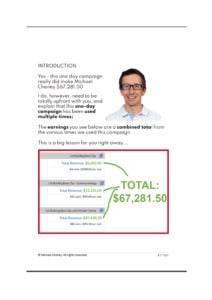Copywriting Workshops & Strategies: Enhance your copywriting skills and learn effective strategies for content marketing success through interactive workshops and practical exercises.

Crafting Compelling Headlines for Copywriting Success
Crafting compelling headlines is a critical aspect of copywriting that can significantly impact the success of a piece of content. A well-crafted headline serves as the gateway to engaging readers and enticing them to explore further into the copy. For instance, the headline “Unleash Your Creativity: 10 Tips for Inspiring Content Creation” immediately captures attention and hints at the value that the content offers to the reader. This example illustrates how a carefully constructed headline can not only attract but also retain the interest of the audience.
Moreover, the art of writing headlines extends beyond mere creativity; it involves a strategic approach to appeal to the target audience and align with the content’s message. Understanding the preferences and behaviours of the audience is crucial in crafting headlines that resonate with readers and prompt them to take action. By analysing successful headline examples from various industries and platforms, copywriters can gain insights into effective strategies, such as incorporating emotional triggers, offering solutions, or creating curiosity to captivate the audience. This strategic use of language and psychology in headline writing can significantly enhance the impact of the content and drive desired outcomes.
Additionally, headlines play a vital role in search engine optimisation (SEO) by incorporating relevant keywords that improve visibility and attract organic traffic to the content. By optimising headlines for search engines while maintaining their appeal to human readers, copywriters can enhance the discoverability and reach of their content. Experimenting with different headline styles, lengths, and formats can help in identifying what resonates best with the target audience and maximising engagement levels. Through continuous practice, feedback, and learning from industry best practices, copywriters can refine their headline writing skills and create compelling content that stands out in a competitive digital landscape.
 Introduction to the Importance of Copywriting Workshops & Strategies
Introduction to the Importance of Copywriting Workshops & Strategies
Copywriting workshops serve as valuable platforms for individuals to enhance their writing skills, gain insights into effective strategies, and refine their craft in the dynamic field of content creation. By participating in these workshops, individuals have the opportunity to explore various techniques, learn from industry experts, and engage in hands-on exercises that simulate real-world scenarios. For example, workshops often focus on dissecting successful campaigns, analysing market trends, and practising different writing styles to equip participants with the tools and knowledge needed to excel in the competitive landscape of content marketing.
Furthermore, copywriters have the responsibility of shaping a brand’s identity and conveying its message through compelling content, ranging from advertisements to social media posts. Strong copywriting skills are essential for creating content that resonates with the target audience, drives engagement, and ultimately contributes to the success of a content marketing strategy. By enrolling in copywriting workshops, individuals can gain a deeper understanding of audience psychology, storytelling techniques, and tone variations that are crucial for crafting persuasive and impactful content across various platforms. Continuous learning and honing of copywriting skills are essential for professionals looking to stay relevant, engage audiences effectively, and achieve their marketing objectives.
 Understanding the Audience in Copywriting
Understanding the Audience in Copywriting
Understanding the audience is a fundamental aspect of successful copywriting workshops, as it forms the foundation for creating content that resonates with readers. By delving into the demographic and psychographic characteristics of the target audience, copywriters can tailor their content to match the preferences, interests, and pain points of the readers. For example, when crafting content for a fashion brand targeting young adults, understanding their lifestyle choices, fashion trends, and social media habits can inform the tone, style, and messaging of the copy to make it more relatable and engaging.
Moreover, effective copywriters go beyond surface-level demographics and delve into the emotional triggers and motivations that drive audience behaviour. By conducting thorough research and analysis of audience data, copywriters can develop content strategies that resonate with specific audience segments and prompt desired actions, such as making a purchase or subscribing to a service. Understanding the audience’s needs and preferences is not only essential for creating relevant and engaging content but also for building long-term relationships and brand loyalty. By incorporating audience-centric approaches in copywriting workshops, participants can learn to craft content that speaks directly to the hearts and minds of their target audience, driving meaningful connections and conversions.
Classic Writing Advice, Techniques, and Principles
Copywriting workshops delve into a plethora of classic writing advice , techniques, and principles that form the backbone of effective content creation. From mastering storytelling to honing persuasive writing skills, workshops offer participants a comprehensive toolkit to craft compelling and engaging copy that resonates with readers. For instance, the art of storytelling in copywriting involves creating narratives that captivate the audience, evoke emotions, and establish a connection with the brand or product being promoted. By learning how to weave storytelling elements into their content, copywriters can create memorable and impactful pieces that leave a lasting impression on the audience.
Furthermore, the principles of great copywriting, such as clarity, conciseness, persuasiveness, and consistency in messaging, are key focus areas in copywriting workshops. Ensuring that the content is clear and concise, while also being persuasive and consistent in delivering the brand message, is essential for engaging readers and driving desired actions. For example, maintaining a consistent brand voice across different communication channels helps in reinforcing brand identity and building trust with the audience. By mastering these fundamental principles, copywriters can create content that not only attracts attention but also retains it, leading to higher engagement levels and conversions.
Crafting Compelling Headlines for Copywriting Success
Crafting compelling headlines is a crucial aspect of copywriting that can significantly impact the success of a piece of content. Effective headlines not only capture the reader’s attention but also convey the essence of the message, enticing them to explore further. For instance, consider the headline “Unleash Your Creativity: 10 Tips for Inspiring Content Creation.” This headline not only hints at the content’s subject matter but also appeals to the reader’s desire for creativity and knowledge.
Moreover, the art of headline writing involves a balance between creativity and clarity. While the headline should be attention-grabbing, it should also accurately represent the content to avoid misleading the audience. By experimenting with different headline styles, such as question-based, listicles, or how-to headlines, copywriters can discover what resonates best with their target audience. A prime example is Buzzfeed’s use of listicle headlines like “20 Things You Didn’t Know About XYZ” to pique curiosity and drive engagement among readers.
Furthermore, understanding audience preferences and behaviour is essential for crafting headlines that resonate with readers. For instance, headlines that evoke emotion, offer value, or promise a solution to a problem tend to perform well as they tap into the audience’s motivations and needs. By analysing successful headlines from various platforms and industries, copywriters can gain valuable insights into effective headline strategies and tailor their approach to suit different content types and audiences.
Playing with Tone in Copywriting for Effective Communication
In the realm of copywriting, the tone of writing serves as a powerful tool that can significantly impact how the audience engages with the content. For example, a brand aiming to establish a friendly and approachable image might utilise an informal and conversational tone in their copy, resonating well with their target demographic. On the contrary, a financial institution might opt for a more formal and authoritative tone to instil trust and credibility in their messaging. These examples highlight how tailoring the tone to the brand’s identity and the target audience can enhance the effectiveness of communication strategies.
Moreover, the strategic use of tone variations is a technique that proficient copywriters often employ to evoke specific emotions and responses from readers. Imagine a charity campaign that adopts a compassionate and emotive tone to compel readers to take action and support a cause. By infusing the copy with the right tone, the campaign can evoke empathy and drive engagement effectively. This exemplifies how understanding the nuances of tone and its impact on the audience can elevate the success of copywriting endeavours. Through careful consideration of tone, copywriters can craft messages that not only resonate with the audience but also reinforce the brand’s identity and values.
 Effective Self-Editing Techniques for Copywriters
Effective Self-Editing Techniques for Copywriters
Self-editing is a critical aspect of the copywriting process, allowing writers to polish their content before publication. Apart from the basic checks for grammar, punctuation, and spelling errors, copywriters should also pay attention to the overall structure and flow of their writing during the editing phase. For instance, ensuring that the introduction hooks the reader, the main body provides valuable information, and the conclusion leaves a lasting impression are all elements that contribute to a well-edited piece.
Moreover, self-editing involves more than just correcting mistakes; it’s about refining the copy to ensure it aligns with the brand’s voice and messaging. Copywriters should evaluate whether the tone used is consistent with the brand personality, whether the language resonates with the target audience, and whether the key message is effectively communicated throughout the content. By approaching self-editing holistically, writers can elevate the quality of their copy and strengthen the impact of their message on readers.
Engaging Workshop Activities and Exercises for Skill Development
Engaging workshop activities and exercises play a crucial role in enhancing the skills of participants in copywriting workshops. Beyond traditional lectures, interactive sessions like brainstorming can stimulate creativity and help individuals generate innovative ideas for their writing projects. For instance, conducting a group brainstorming session where participants can share their thoughts and perspectives on a given topic can lead to the development of diverse and compelling copywriting concepts. This collaborative approach not only encourages teamwork but also provides individuals with a platform to learn from one another’s unique writing styles and techniques.
Moreover, real-world writing assignments are a cornerstone of copywriting workshops, offering participants the opportunity to put their knowledge into practice and refine their skills through hands-on experience. By working on actual writing tasks, individuals can gain practical insights into crafting different types of content, such as advertisements, social media posts, or website copy, under the guidance of experienced instructors. These assignments also allow participants to receive valuable feedback on their work, helping them identify areas for improvement and develop a more polished writing style. Through such exercises, participants can bridge the gap between theoretical knowledge and practical application, preparing them for real-world copywriting challenges they may encounter in their professional careers.
Examples of Successful Copywriting Campaigns for Inspiration
Studying successful copywriting campaigns from renowned brands provides invaluable insights into the intricate world of effective marketing strategies, messaging techniques, and creative executions. For instance, the “Share a Coke” campaign by Coca-Cola stands out as a prime example of a successful copywriting campaign that revolutionised personalised marketing. By replacing the brand’s logo with popular names on their bottles, Coca-Cola created a sense of individuality and connection with consumers, resulting in a significant increase in sales and brand loyalty.
Moreover, in the case of the Dove “Real Beauty” campaign, the use of empowering and inclusive language resonated deeply with the audience, challenging conventional beauty standards and fostering a positive brand image. This campaign not only showcased the power of using authentic and relatable messaging but also highlighted the importance of aligning copywriting with the values and beliefs of the target audience. By dissecting these campaigns, copywriters can gain a deeper understanding of how to craft compelling copy that not only captures attention but also drives meaningful engagement and emotional connections with consumers.
By examining the key elements that contributed to the success of these campaigns, such as storytelling, emotional appeal, and audience relevance, copywriters can expand their creative horizons and explore innovative approaches in their own work. For instance, the Nike “Just Do It” campaign exemplifies the effectiveness of concise yet impactful copy that resonates with the brand’s ethos and inspires action. Understanding how these campaigns leverage persuasive language, visual elements, and brand consistency can serve as a wellspring of inspiration for copywriters looking to elevate their craft and make a lasting impact in the dynamic realm of advertising and marketing.
 Online Courses and Resources for Copywriting Skills Development
Online Courses and Resources for Copywriting Skills Development
Online copywriting courses are invaluable resources for individuals looking to enhance their writing skills in a flexible and convenient manner. These courses cater to a wide range of learning needs, from SEO copywriting to persuasive writing, ensuring that participants can choose the specific area they want to focus on for skill development. For example, platforms like the Creative Copywriter Academy, IDM, and AWAI offer courses that cover different aspects of copywriting, providing a comprehensive learning experience tailored to individual preferences and goals.
In addition to structured courses, online platforms also offer a wealth of resources such as webinars, tutorials, and industry publications to support copywriters in their skills development journey. These resources not only supplement the learning process but also help individuals stay up-to-date with the latest trends and best practices in the ever-evolving field of copywriting. For instance, attending a webinar on crafting compelling headlines or reading an industry publication about effective storytelling techniques can provide valuable insights and inspiration for copywriters to enhance their craft.
Tips for Conducting Engaging and Effective Copywriting Workshops
When conducting copywriting workshops, it is essential to create an interactive and engaging environment to maximise participant involvement and learning outcomes. Incorporating hands-on activities, such as group brainstorming sessions or live writing exercises, can help attendees apply theoretical concepts to practical scenarios. For instance, a workshop activity could involve analysing successful copywriting campaigns and collectively identifying the key elements that made them effective, allowing participants to learn from real-world examples and enhance their skills.
Moreover, offering mentorship opportunities and networking sessions during copywriting workshops can provide participants with valuable insights and industry connections. Guest speakers, who are experienced professionals in the field of copywriting or marketing, can share their expertise and practical tips, offering a unique learning experience for workshop attendees. By interacting with industry experts and peers, participants can broaden their knowledge, receive personalised feedback on their work, and build a supportive network for future collaborations.
Furthermore, clear communication of workshop objectives, along with setting realistic expectations for participants, is crucial for ensuring a successful learning experience. Workshop organisers should outline the agenda, learning outcomes, and any prerequisites beforehand to help attendees prepare adequately and make the most out of the workshop sessions. By aligning the workshop content with the skill levels and interests of the participants, organisers can tailor the experience to meet the specific needs of the audience, fostering a productive and enriching learning environment for all involved.
 Choosing the Right Copywriting Course for Professional Development
Choosing the Right Copywriting Course for Professional Development
When embarking on a journey to enhance copywriting skills, selecting the most suitable course is crucial for achieving professional growth. It is essential to consider various factors that align with individual career aspirations, current proficiency levels, and preferred learning styles to maximise the benefits of the learning experience. For instance, aspiring copywriters aiming to specialise in digital marketing may benefit from courses focusing on SEO copywriting, content optimisation, and online engagement strategies to meet the demands of the digital landscape.
In addition to personal goals and interests, evaluating the course content, instructor credentials, and accreditation can significantly impact the quality of learning and skill development. Courses that offer practical insights, real-world case studies, and interactive learning opportunities tend to provide a more enriching experience for participants, allowing them to apply theoretical concepts to practical scenarios effectively. Furthermore, reviews and testimonials from past participants can offer valuable insights into the course structure, teaching methodologies, and overall satisfaction levels, aiding in making an informed decision when choosing the most suitable copywriting course for professional development.
Conclusion: The Impact of Copywriting Workshops on Career Growth and Content Marketing Success
Engaging in copywriting workshops offers numerous benefits that significantly impact career growth and content marketing success. By attending these workshops, individuals have the opportunity to enhance their writing skills through hands-on practice, expert guidance, and constructive feedback, which are crucial for excelling in the field of copywriting. Moreover, these workshops foster creativity by encouraging participants to think outside the box, experiment with different writing styles, and explore innovative approaches to crafting compelling content.
One example of how copywriting workshops contribute to career growth is by providing participants with practical knowledge and industry insights that are directly applicable to their professional endeavours. For instance, workshops often focus on real-world case studies, successful copywriting campaigns, and current trends in the marketing landscape, offering valuable lessons and inspiration for attendees. By immersing themselves in such learning experiences, individuals can stay updated on industry best practices, refine their skills, and adapt to the evolving demands of the market, thereby enhancing their career prospects and staying ahead of the competition.
In conclusion, the impact of copywriting workshops extends beyond skill development, playing a vital role in shaping successful careers and driving effective content marketing strategies. Embracing the opportunity to learn from industry experts, collaborate with peers, and refine one’s writing abilities through workshops can lead to enhanced creativity, improved writing proficiency, and a competitive edge in the dynamic world of content creation.

If you’ve been struggling online this report will open your eyes.

Become the Internet Marketing Millionaire’s Next Apprentice!!

 Introduction to the Importance of Copywriting Workshops & Strategies
Introduction to the Importance of Copywriting Workshops & Strategies Understanding the Audience in Copywriting
Understanding the Audience in Copywriting Effective Self-Editing Techniques for Copywriters
Effective Self-Editing Techniques for Copywriters Online Courses and Resources for Copywriting Skills Development
Online Courses and Resources for Copywriting Skills Development Choosing the Right Copywriting Course for Professional Development
Choosing the Right Copywriting Course for Professional Development